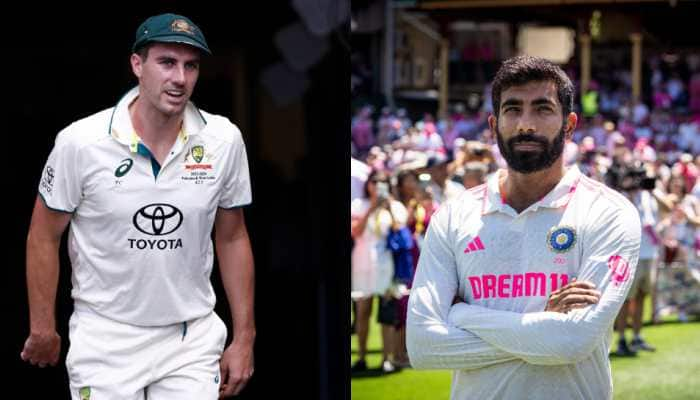180th birth anniversary of Bankim Chandra Chattopadhyay, literary pioneer who wrote Vande Mataram
He is credited with the first Bangla novel, which was among the earliest in Indian languages.
Trending Photos
)
Today is the 180th birth anniversary of Bankim Chandra Chattopadhyay, the Bengali literary giant who is today best remembered for penning the words of 'Vande Mataram', the National Song.
Political leaders from across the spectrum have posted to their social media accounts to commemorate the birth anniversary of the man who is arguably considered among the key figures of the renaissance of Bangla literature.
Here is a quick-fire guide to Bankim Chandra Chattopadhyay:
- He was born in 1838 in Naihati, north of today's Kolkata. His father was a civil servant working for the British East India Company. He had two brothers, of whom Sanjib Chandra was also a noted novelist.
- Chattopadhyay educated at the Hoogly College and Presidency College. He went on to become one of the earliest graduates of the University of Calcutta. He served in the Indian Civil Service and retired as a Deputy Magistrate in 1891.
- Chattopadhyay is considered among the pioneers of the shift in Indian, especially Bangla, literary tradition away from the verse and towards prose. In that sense, he is considered among the earliest Indian novelists, and had a major impact on Indian writers who came after him.
- His first novel was in English, called Rajmohan's Wife. It was serialised and appeared in the Indian Field magazine in 1864. Biographical accounts say he realised he couldn't get wide readership if he continued to write in English and decided to write in his mother tongue instead.
- His first work in Bangla was Durgeshnandini, which is considered the first Bangla novel. While literary critics consider it a low quality work of prose, its impact is attested by a number of notable intellectuals of the time. It took "the Bengali heart by storm," according to Hindu philosopher and reformer Debendanath Tagore. He considered Krishnakanter Uil (1878) his best novel.
- He is perhaps best remembered for a small portion of his novel, Anandamath, which is today India's National Song, Vande Mataram. The book is set against the backdrop of what is known as the Sanyasi Rebellion. The book is considered a call for the rise of Hindu nationalism, and portrayed sanyasis (ascetics) fighting Muslims soldiers of the British army.
- It is because of this setting that some consider Vande Mataram to have communal overtones. This controversy lives on to this day, with some Muslims refusing to sing or honour the song.
- Vande Mataram was picked up a number of intellectuals of the time, some of whom were Hindu nationalists. The song was later set to tune by Rabindranath Tagore, and became a rallying cry for the growing Independence Movement.
- The first two verses of the song were adopted as the national song by the Indian National Congress in 1937. The remaining verses contained references to Goddess Durga and were dropped so as to not offend non-Hindus. It was announced as the National Song by Rajendra Prasad on January 24, 1950, in recognition of its role in the Independence Movement, against the backdrop of demands that it be made the national anthem of newly independent India. It was accorded equal status to the National Anthem.
- The song remains a popular evocation to national pride and has been interpreted and performed by artistes all throughout.
Stay informed on all the latest news, real-time breaking news updates, and follow all the important headlines in india news and world News on Zee News.
Live Tv







)
)
)
)
)
)
)
)
)
)
